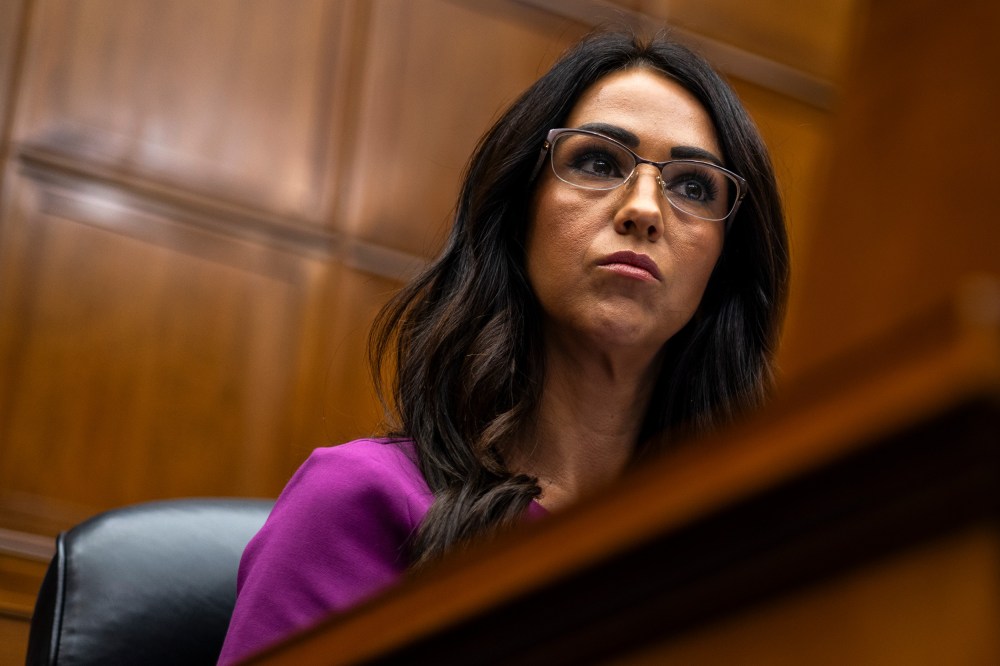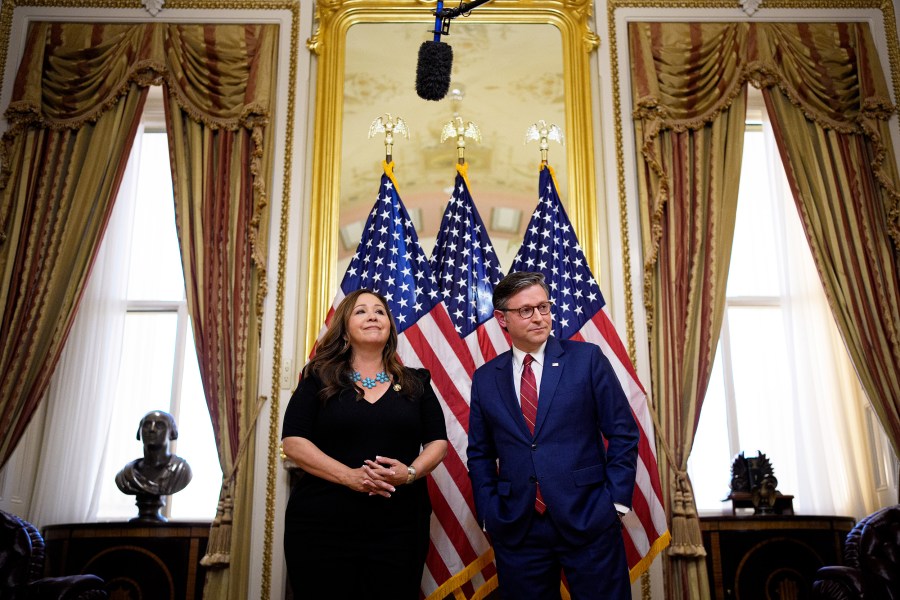Trump administration officials met with Rep. Lauren Boebert, R-Colo., at the White House on Wednesday, attempting to convince her to remove her name from the Jeffrey Epstein discharge petition before it couldn’t be changed, according to a White House official and a source close to Boebert.
Boebert is just one of four House Republicans who signed the Epstein discharge petition — a procedural maneuver allowing legislation to reach the House floor without the blessing of its leadership. On Wednesday afternoon, the petition reached 218 signatures after the swearing-in of Rep. Adelita Grijalva, D-Ariz., the bar for triggering House action.
Now, Speaker Mike Johnson, R-La., will be forced to hold a floor vote on an issue that has roiled the Republican base and would, if successful, order the government to release more of its files related to deceased sex offender Jeffrey Epstein. Under House rules, no more names can be added or removed from the petition since it hit 218 signatures.
On Wednesday night, Johnson said that he plans to hold a floor vote next week.
Trump administration officials and President Donald Trump — who on Wednesday was fending off new allegations about his connection to Epstein — had sought to stop the House from acting in what would be a decisive rebuke of the president, who has argued that the Epstein controversy is a sideshow he thinks the GOP should ignore. House Democrats released new emails Wednesday from Epstein suggesting that Trump “knew about the girls,” which Trump has repeatedly denied.
Under House rules, no more names can be added or removed from the petition since it hit 218 signatures.
At Wednesday’s meeting, Boebert was not persuaded to remove her name despite the White House effort, said one of the sources who requested anonymity to discuss a confidential meeting. FBI Director Kash Patel was among those at the meeting, the source said, noting that Trump was not present. But Trump did call the Colorado congresswoman on Tuesday, said two sources familiar with the call who requested anonymity to discuss a private discussion.
During that conversation, Trump tried to encourage Boebert to remove her name from the discharge petition, which is led by one Republican and one Democrat. Boebert gave the impression that she would not follow suit, the sources said.
While the discharge petition reached the magic number of 218 Wednesday afternoon, floor action will not be immediate.
Even if the House passes the legislation, it is unlikely to be signed into law. The Senate would have to approve the bill, which would be an uphill battle, and Trump can still veto it should the resolution land on his desk.
During a White House press briefing on Wednesday, press secretary Karoline Leavitt acknowledged the meeting Boebert attended — which was first reported by CNN — when asked by a reporter about it.
“Doesn’t that show the level of transparency when we are willing to sit down with members of Congress and address their concerns?” Leavitt said to reporters when asked about the meeting with Boebert. “I’m not going to detail conversations that took place in the Situation Room,” she said, seemingly referencing the meeting.














